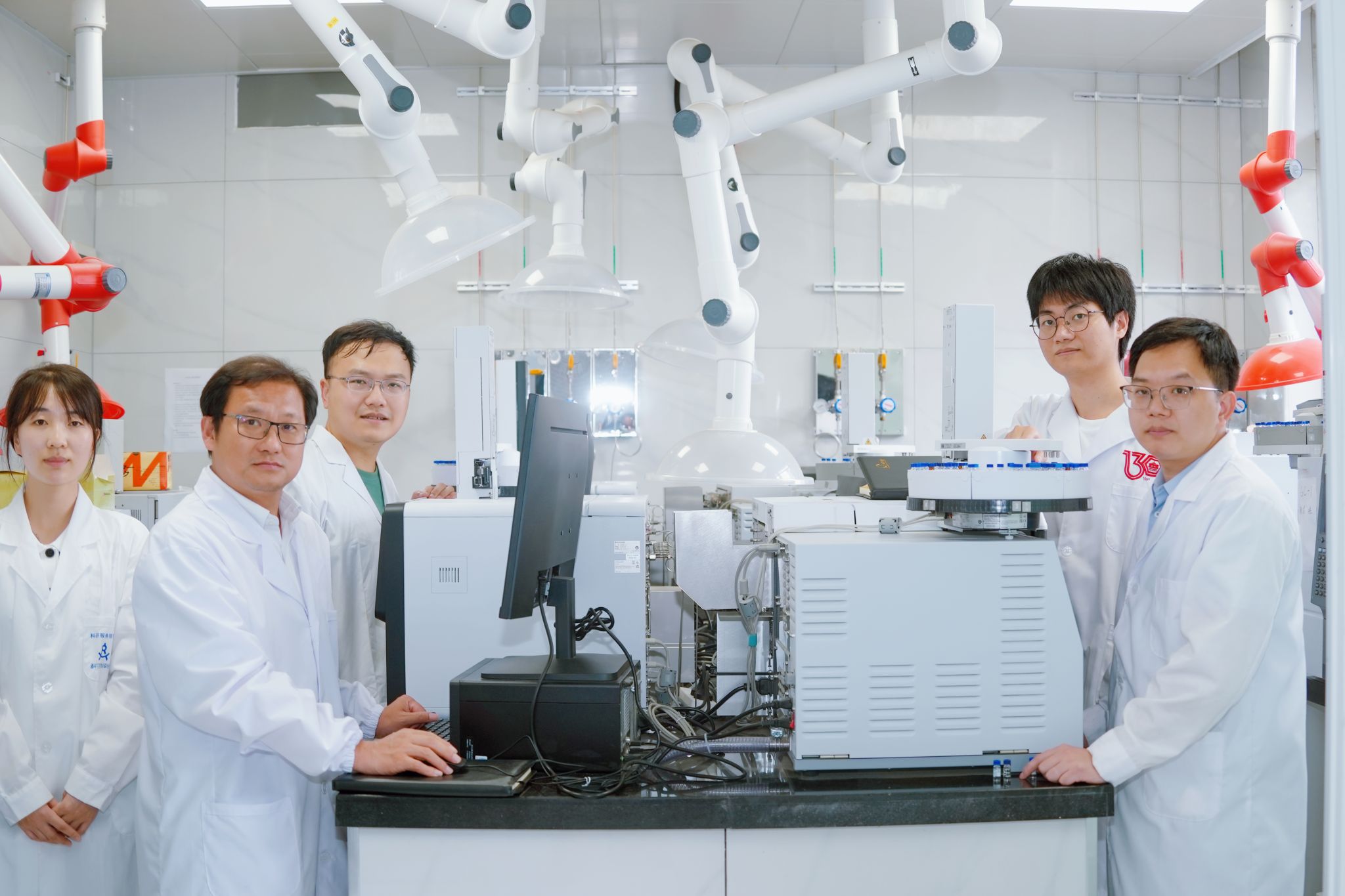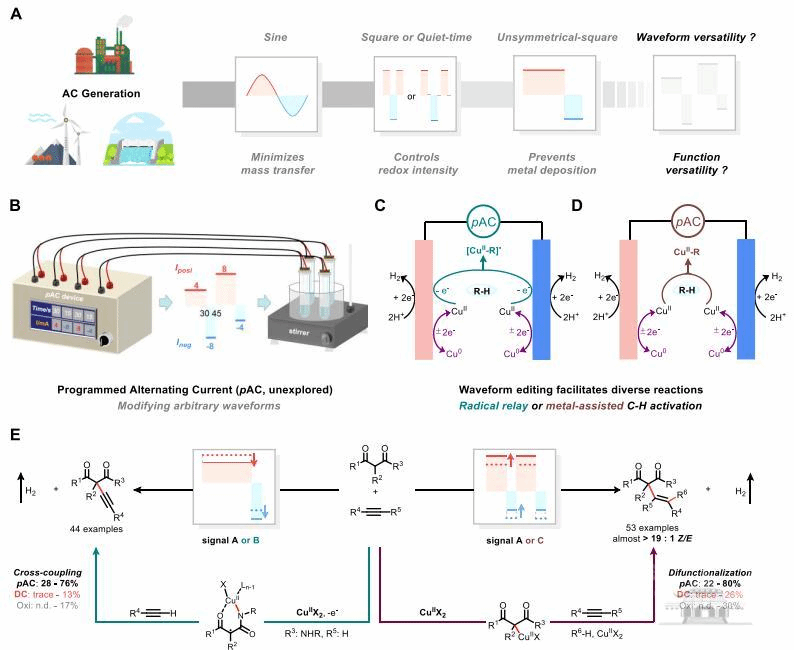On July 12, Beijing time, Science published online the latest research paper on alternating current (AC) synthetic chemistry by Professor Lei Aiwen’s team from the Institute for Advanced Study and College of Chemistry and Molecular Sciences at Wuhan University. The paper is entitled “Programmed alternating current optimization of Cu-catalyzed C-H bond transformations”. Zeng Li, distinguished associate researcher from the Institute for Advanced Study at Wuhan University, Yang Qinghong, doctoral student from the College of Chemistry and Molecular Sciences, and Wang Jianxing, master’s student from the Institute for Advanced Study of Wuhan University, are co-first authors, while Professor Lei Aiwen is the sole corresponding author, and Wuhan University is the first signatory.


The new technology of synthetic electrochemistry is one of the top ten emerging technologies in chemistry assessed by the International Union of Pure and Applied Chemistry (IUPAC) for 2023. Owing to its green, safe and low energy consumption characteristics, the new synthetic electrochemical technology is expected to develop into a new quality of productivity, which is used to solve the current environmental pollution, safety production risks and high energy consumption problems caused by the current productivity driven by fossil energy. This new synthesis technology mainly uses direct current (DC) as the driving force and controls the chemical reaction process by adjusting the current or voltage. Alternating current is characterized by polarity reversals and periodic fluctuations, and it has the advantage of more adjustable electrical parameters such as waveform, frequency, duty cycle, and so on, offering ‘unlimited potential’ for precise material manufacturing. However, the introduction of more dimensional electrical parameters into the electrochemical synthesis reaction leads to an exponential increase in the optimizable reaction conditions, which significantly increases the research difficulty. So far, AC synthesis technology is still in its infancy, and only a few simple application studies have been reported.
Professor Lei Aiwen’s team has been working on green synthetic chemistry for more than 15 years, and this research pioneered the development of programmable waveform alternating current (pAC) synthesis technology to achieve the cross-coupling reaction of copper-catalyzed hydrogen oxidation. The customized AC signal can be obtained by program editing the AC waveform’s electrical parameters (frequency, current and duty cycle). The electrical signals of different editing modes not only promote the recycling and regeneration of copper catalysts under electrolytic conditions, but also accurately regulate copper catalysts to form ‘copper-bound carbon free radical species’ and ‘carbon-copper active species’, respectively. In addition, Professor Lei Aiwen’s team developed in situ electron paramagnetic resonance spectroscopy and AC electrolysis characterization technology and observed the dynamic regulation of different AC electrical signals on the activity of copper catalytic species for the first time. Based on the programmable AC synthesis technology, the research team successfully realized the direct C-H bond oxidative coupling reaction and oxidative bifunctional reaction of the copper catalyzed activation of alkanes, which showed poor reactivity under the conditions of traditional oxidant and direct current oxidation.
This study realized the precise control of metal catalytic species in the AC electrolysis environment and solved the scientific problem that the transition metal catalyst is easy to deactivate in the cathode under the condition of electrosynthesis and must use a separation cell. This study provides a feasible path for the development of new synthesis reactions with metal catalytic coupling electrocatalysis under the condition of integrated electrolytic cell. The emergence of programmable waveform AC synthesis technology will provide significant help for the new synthetic electrochemical technology in a wider range of applications, such as green matter manufacturing, and provide new kinetic energy for the green, intelligent and high-end chemical industry.

The work has been supported by the key project of the National Natural Science Foundation of China, the National Key Research and Development Program, the Wuhan Science Foundation and the China Postdoctoral Innovative Talent Support Program.
Link to paper:https://www.science.org/doi/10.1126/science.ado0875


